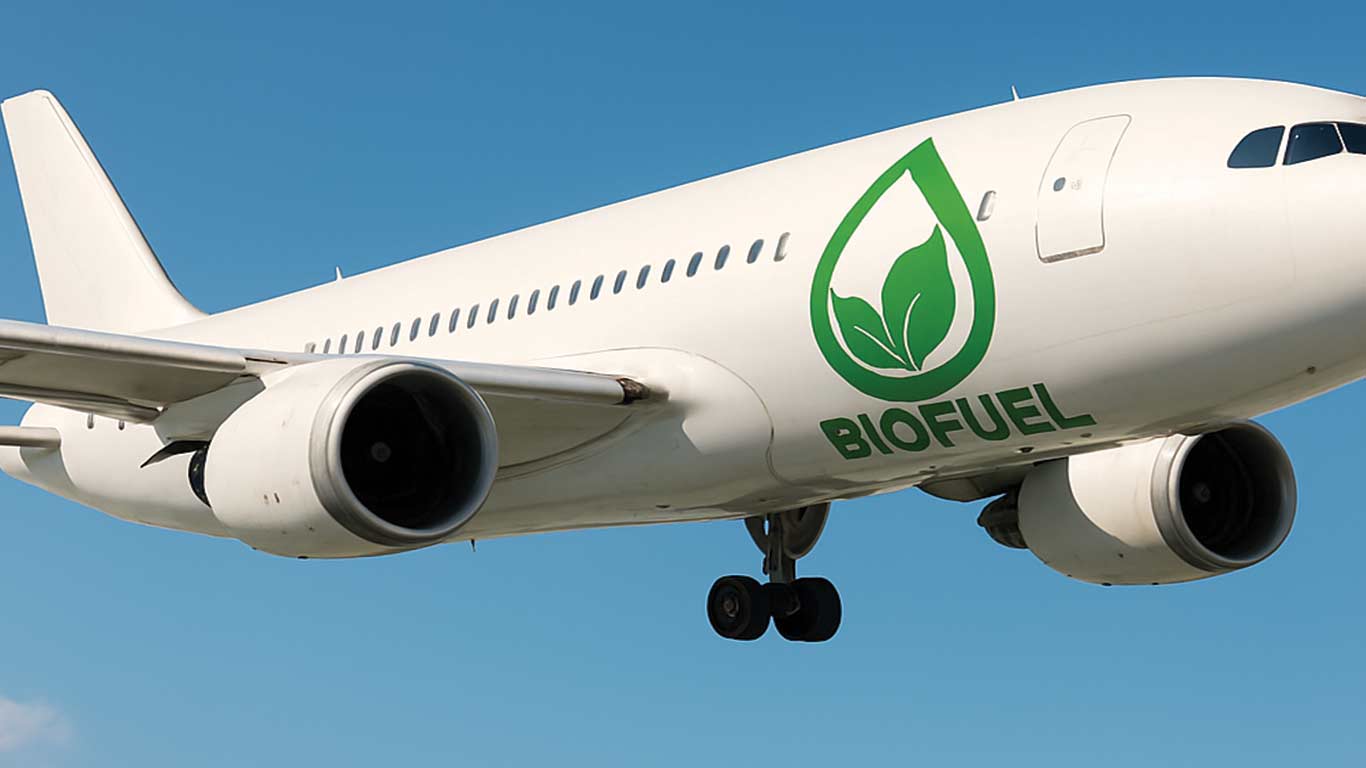Top Stories
India Plans 5% Sustainable Aviation Fuel Blend for Domestic Flights by 2030

India is poised to implement a mandate requiring a blend of 5% Sustainable Aviation Fuel (SAF) for domestic flights by the year 2030, with plans to increase this target to 15% by 2040. This initiative is outlined in a recent report published by Deloitte in collaboration with the Indian Sugar & Bio-Energy Manufacturers Association (ISMA). The anticipated demand for domestic SAF is projected to reach nearly 100 crore litres by 2030 and escalate to 600 crore litres by 2040.
The country’s capacity to support this transition is underpinned by its rich feedstock resources, which include used cooking oil, agricultural residue, sugarcane, maize, and various biomass sources. These materials not only position India to fulfill its internal SAF requirements but also present opportunities for the nation to become a significant exporter in the global market. The report suggests that India could generate between 2,450 crore and 3,100 crore litres of SAF annually by 2040.
Currently, India has established SAF blending mandates exclusively for international flights, starting with 1% by 2027, 2% by 2028, and reaching 5% by 2030. As of now, there have been no official targets set for domestic flights, making the proposed mandates a significant shift in policy aimed at decarbonizing the aviation sector.
Strategic Developments in SAF Production
Supporting this transition to a more sustainable aviation industry, Indian Oil Corporation (IOC) is set to begin the production of SAF derived from used cooking oil at its Panipat refinery. The refinery is expected to commence operations in December 2025, with an annual production capacity of 35,000 tonnes. The raw materials for this production will be sourced from notable hospitality chains, including ITC and Haldiram’s.
Blending SAF with conventional aviation turbine fuel (ATF) has been shown to significantly reduce greenhouse gas emissions, potentially achieving reductions of up to 80% compared to traditional jet fuel. With a robust feedstock base and an expanding aviation sector, India is well-positioned to emerge as a leader in the global SAF market.
The establishment of these blending mandates reflects a broader commitment to sustainable energy practices and the reduction of carbon footprints across industries, particularly in aviation. As the world increasingly turns its attention to climate change and environmental sustainability, India’s developments in SAF present a critical opportunity to not only meet domestic demands but also to play a pivotal role in the global transition towards greener aviation.
-

 World5 months ago
World5 months agoSBI Announces QIP Floor Price at ₹811.05 Per Share
-

 Lifestyle5 months ago
Lifestyle5 months agoCept Unveils ₹3.1 Crore Urban Mobility Plan for Sustainable Growth
-

 Science4 months ago
Science4 months agoNew Blood Group Discovered in South Indian Woman at Rotary Centre
-

 World5 months ago
World5 months agoTorrential Rains Cause Flash Flooding in New York and New Jersey
-

 Top Stories5 months ago
Top Stories5 months agoKonkani Cultural Organisation to Host Pearl Jubilee in Abu Dhabi
-

 Sports4 months ago
Sports4 months agoBroad Advocates for Bowling Change Ahead of Final Test Against India
-

 Science5 months ago
Science5 months agoNothing Headphone 1 Review: A Bold Contender in Audio Design
-

 Top Stories5 months ago
Top Stories5 months agoAir India Crash Investigation Highlights Boeing Fuel Switch Concerns
-

 Business5 months ago
Business5 months agoIndian Stock Market Rebounds: Sensex and Nifty Rise After Four-Day Decline
-

 Sports4 months ago
Sports4 months agoCristian Totti Retires at 19: Pressure of Fame Takes Toll
-

 Politics5 months ago
Politics5 months agoAbandoned Doberman Finds New Home After Journey to Prague
-

 Top Stories5 months ago
Top Stories5 months agoPatna Bank Manager Abhishek Varun Found Dead in Well









